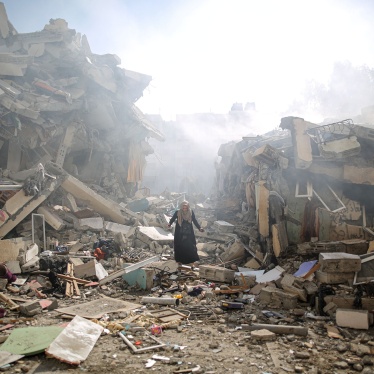(Tunis) – Tunisia experienced further regression in terms of human rights and the rule of law during 2023 in the absence of genuine checks and balances on President Kais Saied’s power, Human Rights Watch said today in its World Report 2024. The government has taken new steps to muzzle free speech, prosecute dissent, and crack down on migrants and asylum seekers.
“Over the past year, President Saied jailed dozens of his opponents and critics, fueled racism and xenophobia against Black migrants and refugees, and threatened the activities of civil society,” said Salsabil Chellali, Tunisia director at Human Rights Watch. “The imprisoning of dissidents and the subjugation of the judiciary are more severe today than at any time since the revolution of 2011.”
In the 740-page World Report 2024, its 34th edition, Human Rights Watch reviews human rights practices in more than 100 countries. In her introductory essay, Executive Director Tirana Hassan says that 2023 was a consequential year not only for human rights suppression and wartime atrocities but also for selective government outrage and transactional diplomacy that carried profound costs for the rights of those not in on the deal. But she says there were also signs of hope, showing the possibility of a different path, and calls on governments to consistently uphold their human rights obligations.
Beginning in February, Tunisian authorities stepped up politically motivated arrests and prosecutions of opposition figures of various political tendencies, lawyers, activists, and journalists. At least 40 opponents or individuals deemed critical of the authorities were behind bars as of December, with most of them accused of “conspiracy against state security” or dubious terrorism related charges, often merely for their peaceful speech or activism.
Tunisian authorities continued to undermine judicial independence by targeting lawyers for defending their clients or expressing their opinions, and ignoring a 2022 court order to reinstate judges arbitrarily dismissed by President Saied. At least 27 lawyers faced civil or military prosecutions as of September.
The authorities have also used a recent cybercrime decree-law, which imposes heavy prison sentences for spreading “fake news” and “rumors” online, to arbitrarily detain, prosecute, or investigate at least 21 people for speech offenses, in one case before a military court.
After Saied made public comments in February linking undocumented Black African migrants to crime and a purported conspiracy to change Tunisia’s demographics, Black African foreigners suffered a surge in attacks by Tunisian citizens.
Throughout the year, the Tunisian police, military, and national guard, including the coast guard, committed serious abuses against Black African migrants, refugees, and asylum seekers, including beatings, use of excessive force, some cases of torture, arbitrary arrests and detention, collective expulsions to perilous border regions, and dangerous actions at sea during boat interceptions. According to the Office of the UN High Commissioner for Human Rights, some 2,000 migrants and asylum-seekers, including women and children, were expelled to Tunisia’s borders with Libya and Algeria in July and August alone.









